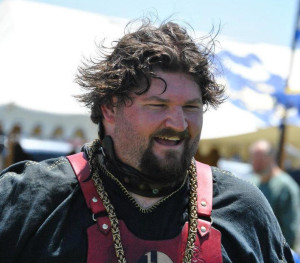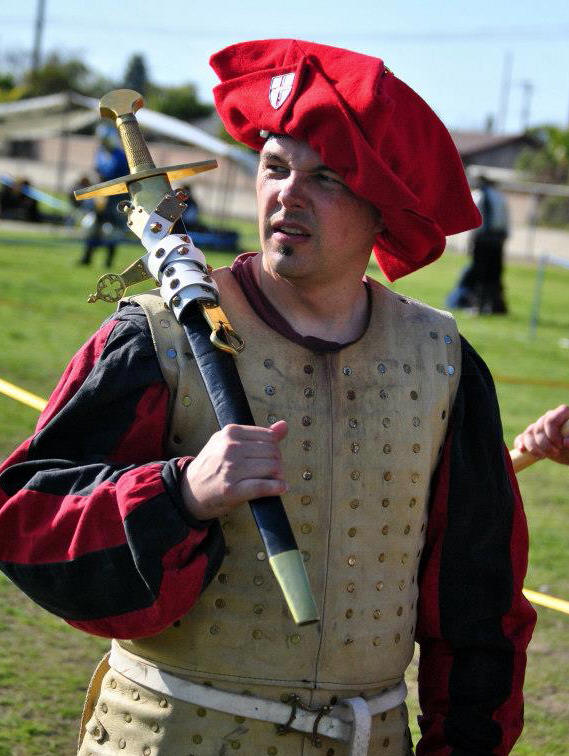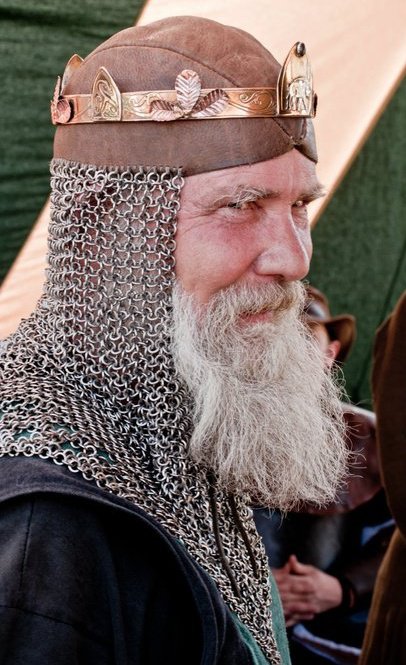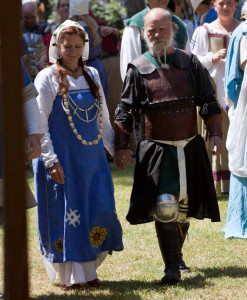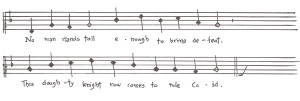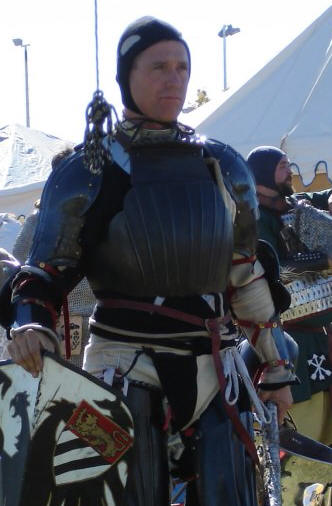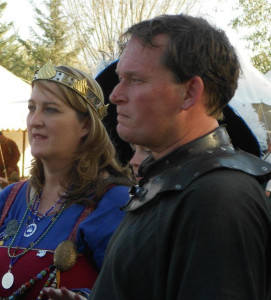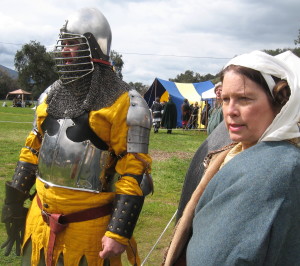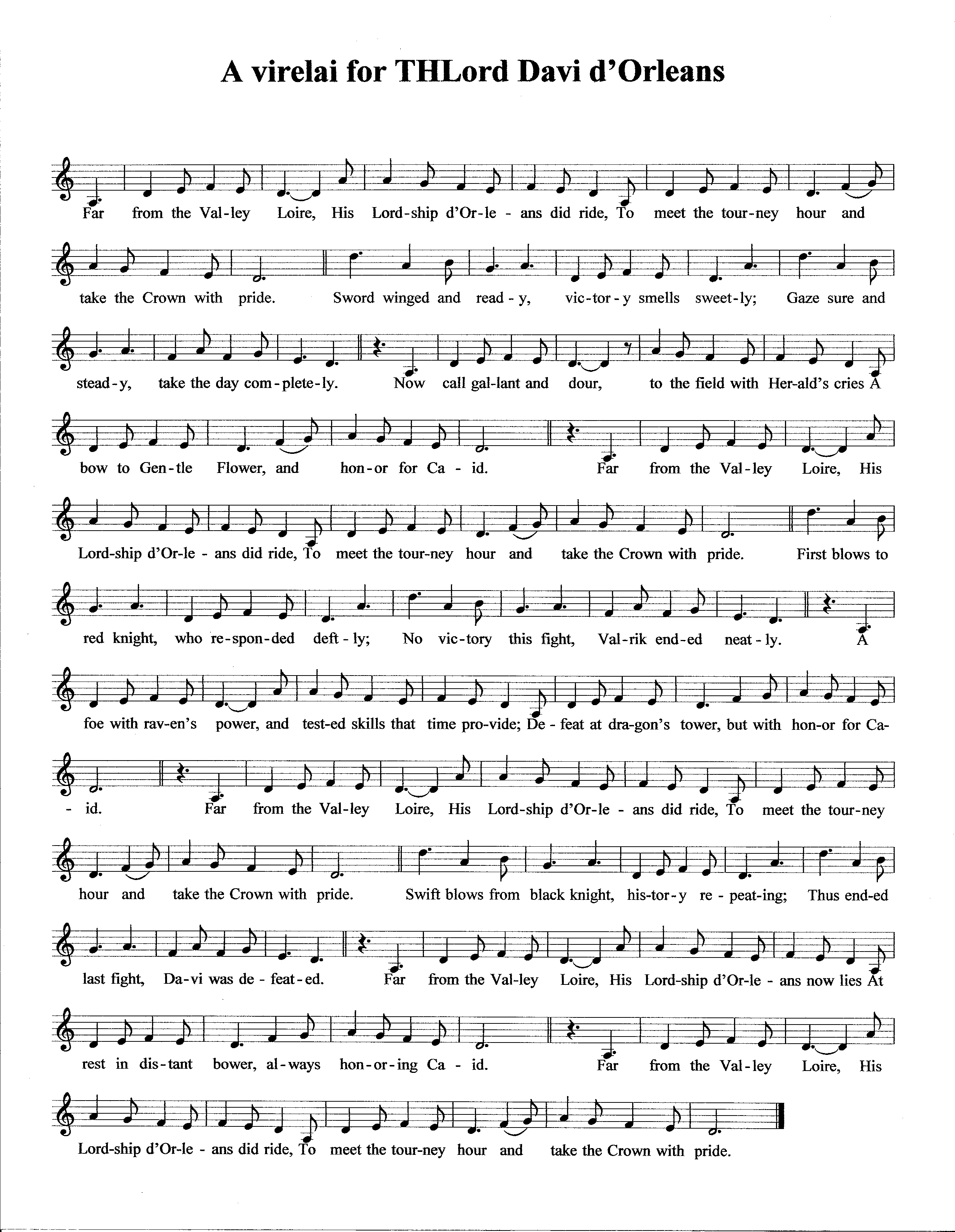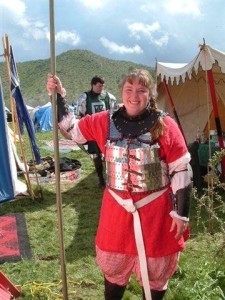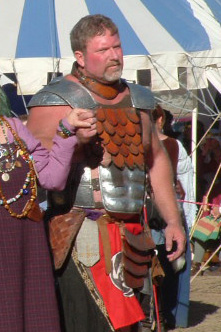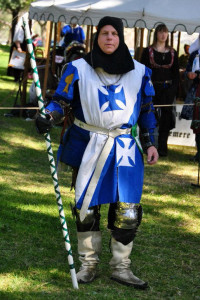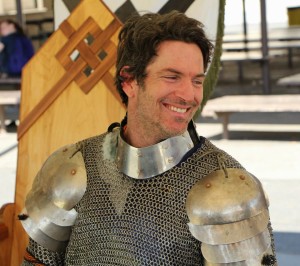 This fighter poem was a favorite to write! The fighter is is a bard, a distinguished poet, and shares my own appreciation of Middle English. Because I hoped to write in Middle English, I chose to write a Chaucerian Roundel, a special rondel form used in the fourteenth century (my own persona’s period), primarily by Chaucer.
This fighter poem was a favorite to write! The fighter is is a bard, a distinguished poet, and shares my own appreciation of Middle English. Because I hoped to write in Middle English, I chose to write a Chaucerian Roundel, a special rondel form used in the fourteenth century (my own persona’s period), primarily by Chaucer.
This roundel contains thirteen lines, with a rhyme scheme ABB abAB abbABB. The first two lines are repeated, as a refrain, at the end of the second stanza — and the first three lines are repeated, as a refrain, at the end of the third.
The challenge of writing in Middle English was as expected, but the real challenge was re-writing the poem, again, in modern English, maintaining the rhyming pattern and the meaning, as well.
————-<>————-
Baron Secca of Kent
fallen in Spring Crown Tourney, A.S. XLVII
(Chaucerian Roundel)
Heere biginnen the Barones Tale
Ona squier swo breeght so lusty also
To sonne slawe ant hertes breste echon.
Of worthy knight then striken yvele
Maidens crid ant fel as al was ydo
So heere goon the Barones Tale
Ona squier swo breeght so lusty also.
Ywis fro werreour brout acts of vileynye
Brout soregh and murne and mones also
Fro this faire quen ant hir leudis and mo
Ant so heere endes the barones tale
Ona squier swo breeght so lusty also
To sonne slawe ant hertes breste echon.
———————————–
And here begins, in rhyme, the Baron’s Plight
A squire so vigorous and fair in face
Too swiftly slain, thus causing hearts to break.
First struck down, rudely, by one noble knight
The maidens cried and fell, without disgrace
Continue now, this Baron’s Tale of Plight
Of squire pleasant, still, and fair in face.
As certain as defeat from villain’s fight
Were moans and sorrow from all in that place
From queen and victors’ ladies, doleful face
And so an end, in rhyme, to Baron’s Plight
A squire so bright and pleasant, fair in face
Too swiftly slain, thus causing hearts to break.
– Bannthegn Beathog nic Dhonnchaidh
. . . is a 14th century bard who can often be seen traveling far from her home in the Highlands with her lord husband and muse. If a good tale crosses her path, she will sing a song about it, pull out its hair and spin it, or throw it in a pot and cook it up.

